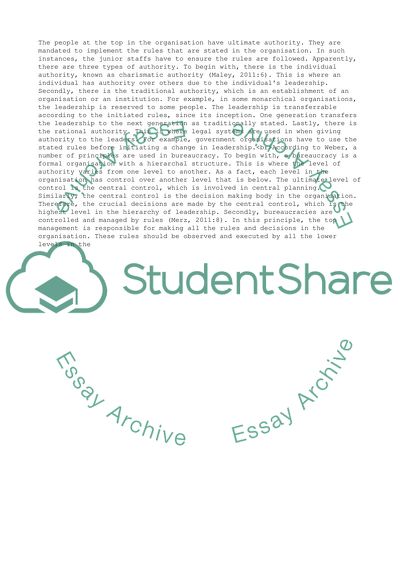Cite this document
(“Utilising the main key concepts of Max Webers theory on Bureaucracy, Essay”, n.d.)
Utilising the main key concepts of Max Webers theory on Bureaucracy, Essay. Retrieved from https://studentshare.org/management/1633488-utilising-the-main-key-concepts-of-max-webers-theory-on-bureaucracy-adescribe-the-main-features-of-a-bureaucratic-organisation-bdiscuss-to-what-extent-the-ideas-of-weber-are-still-relevant-in-the-21st-century-ccritically-assess-the-relevance
Utilising the main key concepts of Max Webers theory on Bureaucracy, Essay. Retrieved from https://studentshare.org/management/1633488-utilising-the-main-key-concepts-of-max-webers-theory-on-bureaucracy-adescribe-the-main-features-of-a-bureaucratic-organisation-bdiscuss-to-what-extent-the-ideas-of-weber-are-still-relevant-in-the-21st-century-ccritically-assess-the-relevance
(Utilising the Main Key Concepts of Max Webers Theory on Bureaucracy, Essay)
Utilising the Main Key Concepts of Max Webers Theory on Bureaucracy, Essay. https://studentshare.org/management/1633488-utilising-the-main-key-concepts-of-max-webers-theory-on-bureaucracy-adescribe-the-main-features-of-a-bureaucratic-organisation-bdiscuss-to-what-extent-the-ideas-of-weber-are-still-relevant-in-the-21st-century-ccritically-assess-the-relevance.
Utilising the Main Key Concepts of Max Webers Theory on Bureaucracy, Essay. https://studentshare.org/management/1633488-utilising-the-main-key-concepts-of-max-webers-theory-on-bureaucracy-adescribe-the-main-features-of-a-bureaucratic-organisation-bdiscuss-to-what-extent-the-ideas-of-weber-are-still-relevant-in-the-21st-century-ccritically-assess-the-relevance.
“Utilising the Main Key Concepts of Max Webers Theory on Bureaucracy, Essay”, n.d. https://studentshare.org/management/1633488-utilising-the-main-key-concepts-of-max-webers-theory-on-bureaucracy-adescribe-the-main-features-of-a-bureaucratic-organisation-bdiscuss-to-what-extent-the-ideas-of-weber-are-still-relevant-in-the-21st-century-ccritically-assess-the-relevance.


